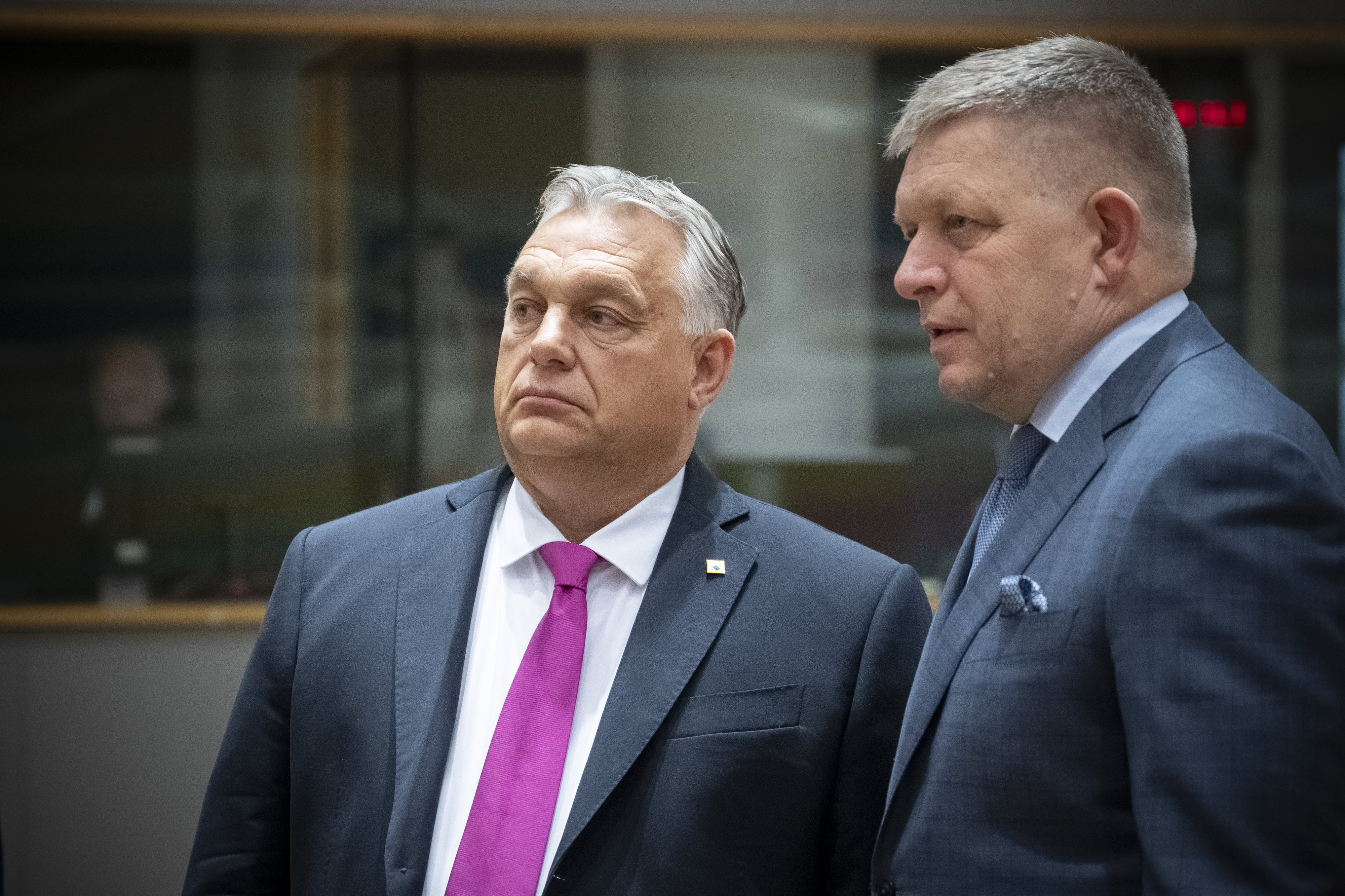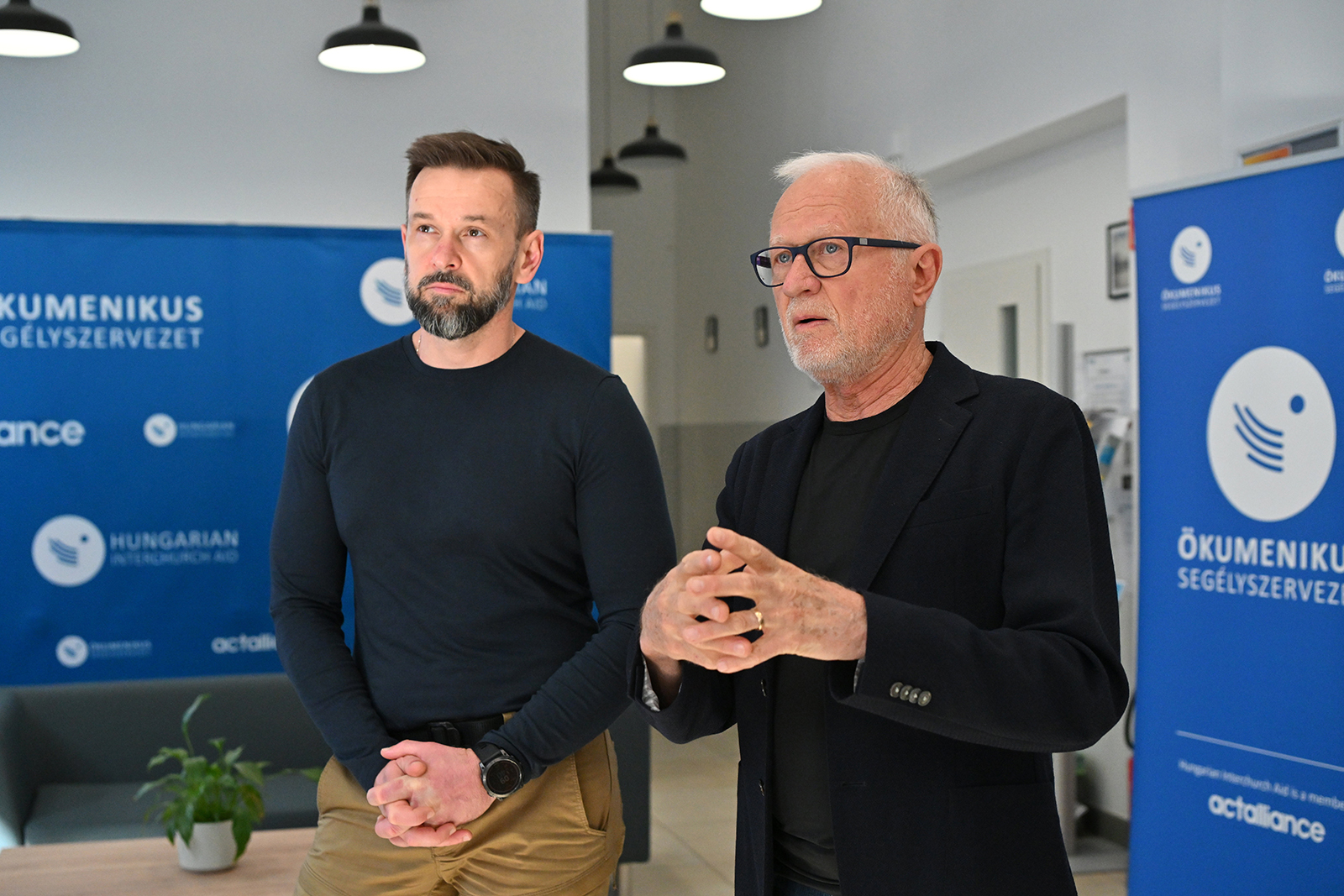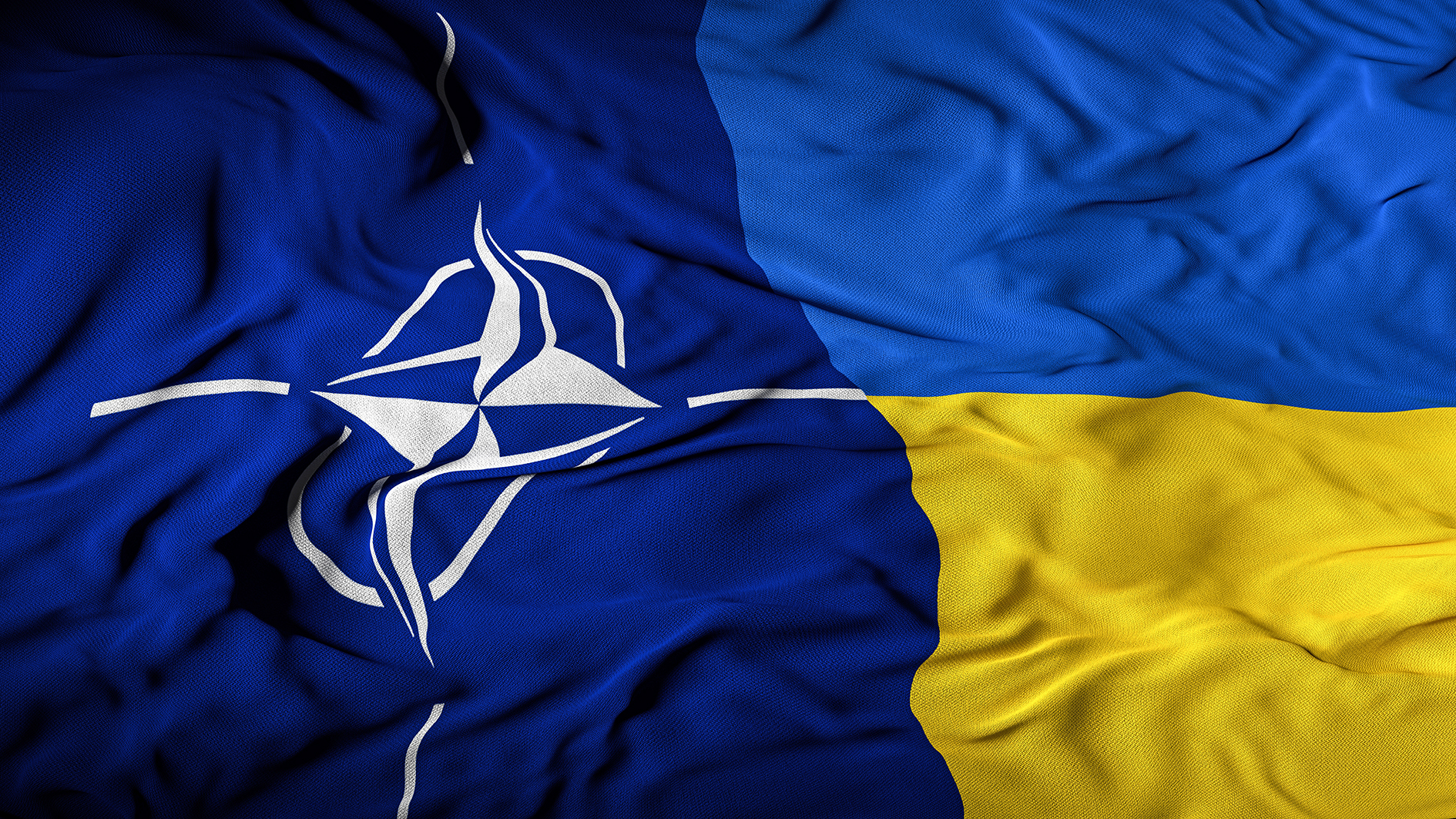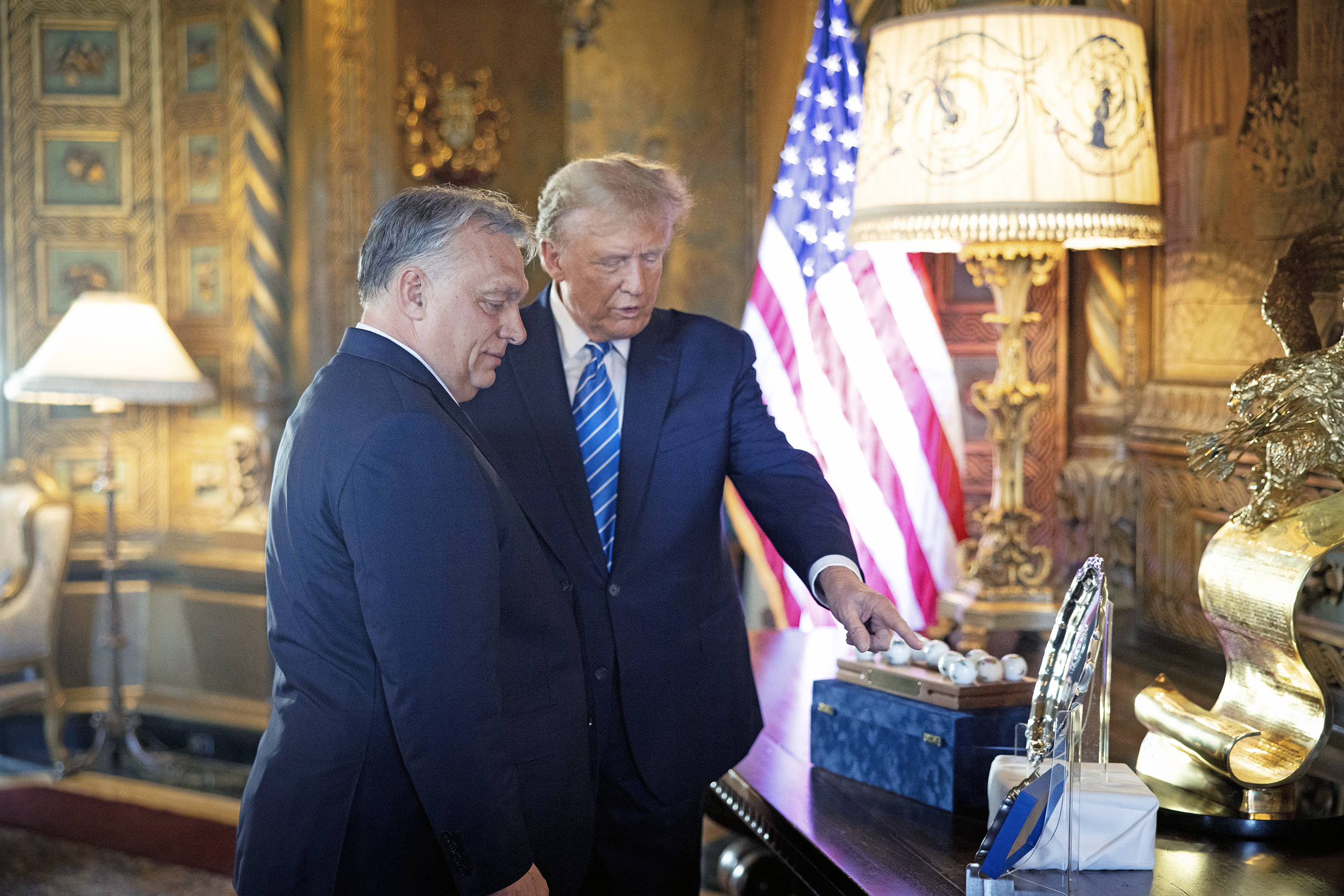Questions for Hungary on Funding Ukraine, Putin Handshake and Sweden’s NATO Aspirations

This image released by the Press Office of the Prime Minister shows Viktor Orbán (left) and Slovak Prime Minister Robert Fico at the two-day summit of the European Union heads of state and government in Brussels on Oct. 26, 2023.
Photo by MTI/ Benko Vivien Cher / Prime Minister’s Press Office / MTI
Leaders from the 27 member states of the European Union met at a summit on Oct. 27 to debate the disbursement of their shared budget over the next four years. Prime Minister Viktor Orbán opposed providing Ukraine with another EUR 50 billion in aid, with his newly elected Slovak counterpart (and old ally) Robert Fico citing corruption as a primary reason for withholding further financial support to Kyiv.
Orbán said Hungary could not support more aid for Ukraine unless presented with “a very well-justified proposal,” and a “clear strategy with objectives.” He said the policy Brussels had adopted, with Ukrainians fighting backed by financing and military equipment from the EU, had “failed.”
“The Ukrainians will not win on the front,” Orbán said. “Every military expert says that, but the politicians won’t acknowledge that we picked a badstrategy,” he concluded.
Ahead of the summit, Estonian Prime Minister Kaja Kallas had said Hungary under Orbán was “becoming a problem we have to address. We have had different opinions before and managed to keep unity, but it’s getting more difficult regarding Hungary,” Kallas said. Nor was he alone.
“We don’t really have a strong tool to address [what Hungary does].” Luxembourg’s Prime Minister Xavier Bettel said before the meeting. He argued that Hungary should not be allowed to hold out on providing further assistance to Ukraine to unblock its own frozen EU funds.
“You can’t say: if you want money for Ukraine, we want money for us,” Bettel said. “We shouldn’t be the hostage of Orbán, and I’m convinced we will find a positive solution.”
In addition to impeding further support for Ukraine, allies have also taken issue with Orbán’s choice to meet with Russian President Vladimir Putin in China on Oct. 17, becoming the first EU leader to do so since an international arrest warrant was issued in March over Putin’s alleged war crimes in Ukraine.
Unpleasant to See
“It was very, very unpleasant to see that,” Estonian Prime Minister Kaja Kallas told international newswire Reuters in an interview in Paris on Oct. 18. “How can you shake a criminal’s hand, who has waged the war of aggression, especially coming from a country that has a history like Hungary has?”
Ambassadors to Hungary from members of the North Atlantic Treaty Organization convened a meeting in Budapest on Oct. 19 to discuss their concerns following the meeting.
“Alone among our allies, Hungary’s leader chooses to plead for business deals with a man whose forces are responsible for crimes against humanity in Ukraine,” David Pressman, the U.S. Ambassador to Hungary, said on the social media platform X (formerly Twitter) after the meeting.
Another lingering issue has been Hungary’s reluctance to ratify Sweden’s membership bid to join NATO. Before the summit, Kallas said she did not think Hungary would block Sweden’s membership of the military alliance for long.
“I think when Türkiye goes [with us], we will probably find the way with Hungary as well,” she said. On Oct. 23, Turkish President Tayyip Erdoğan submitted a bill approving Sweden’s NATO membership bid to parliament for ratification.
However, following this development, Minister of Foreign Affairs and Trade Péter Szijjártó said, “This changes nothing on our side. Hungary’s parliament is a sovereign parliament of a sovereign country and will take a sovereign decision in the matter.”
After speaking with his Turkish counterpart, Hakan Fidan, who informed him that the bill on ratifying Sweden’s accession had been tabled, Szijjártó explained that Hungary’s government had submitted the bill on authorizing Sweden’s NATO membership to lawmakers months earlier. “Now, Türkiye’s parliament is where we were months ago,” he concluded.
This article was first published in the Budapest Business Journal print issue of November 3, 2023.
SUPPORT THE BUDAPEST BUSINESS JOURNAL
Producing journalism that is worthy of the name is a costly business. For 27 years, the publishers, editors and reporters of the Budapest Business Journal have striven to bring you business news that works, information that you can trust, that is factual, accurate and presented without fear or favor.
Newspaper organizations across the globe have struggled to find a business model that allows them to continue to excel, without compromising their ability to perform. Most recently, some have experimented with the idea of involving their most important stakeholders, their readers.
We would like to offer that same opportunity to our readers. We would like to invite you to help us deliver the quality business journalism you require. Hit our Support the BBJ button and you can choose the how much and how often you send us your contributions.











